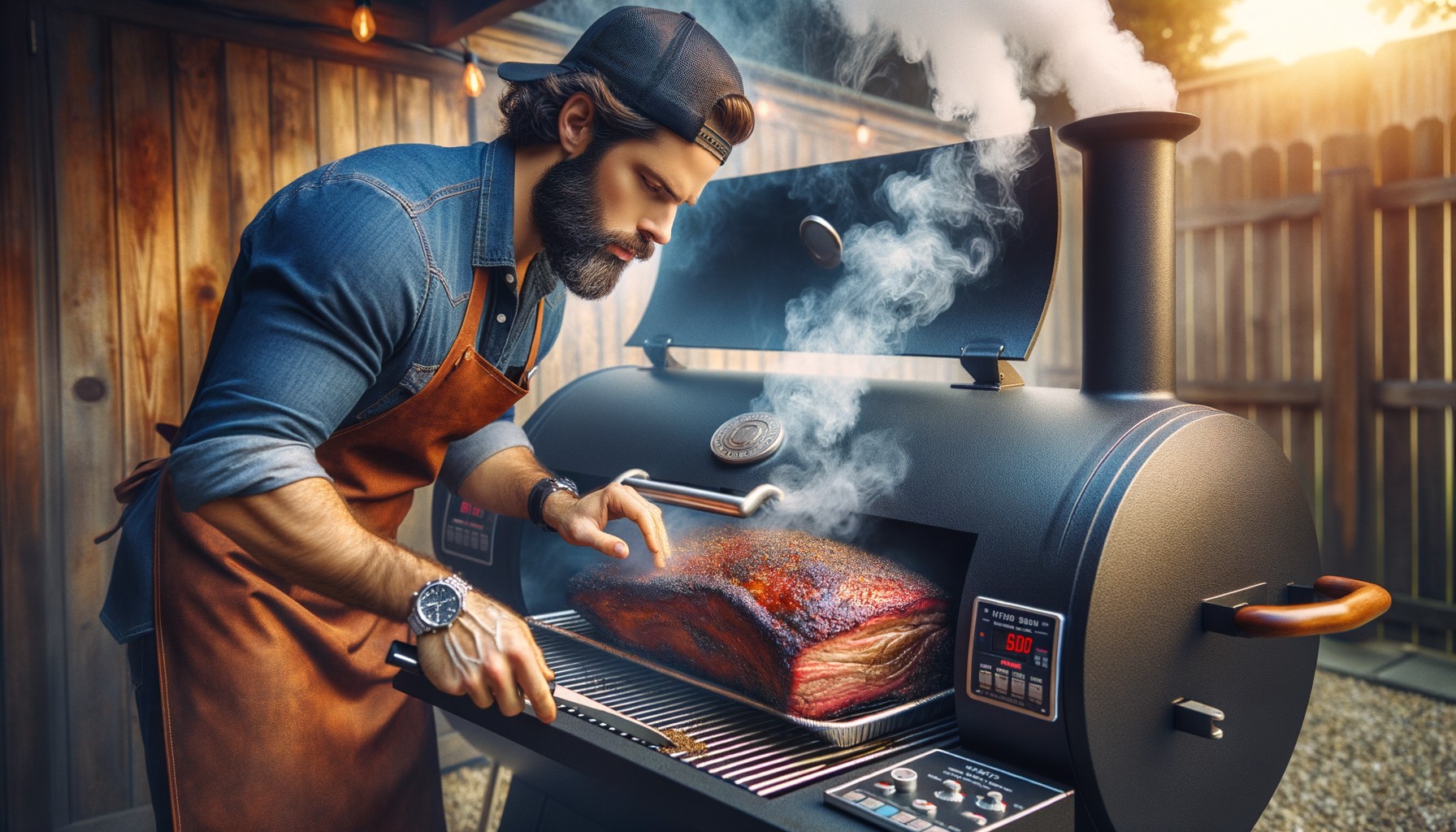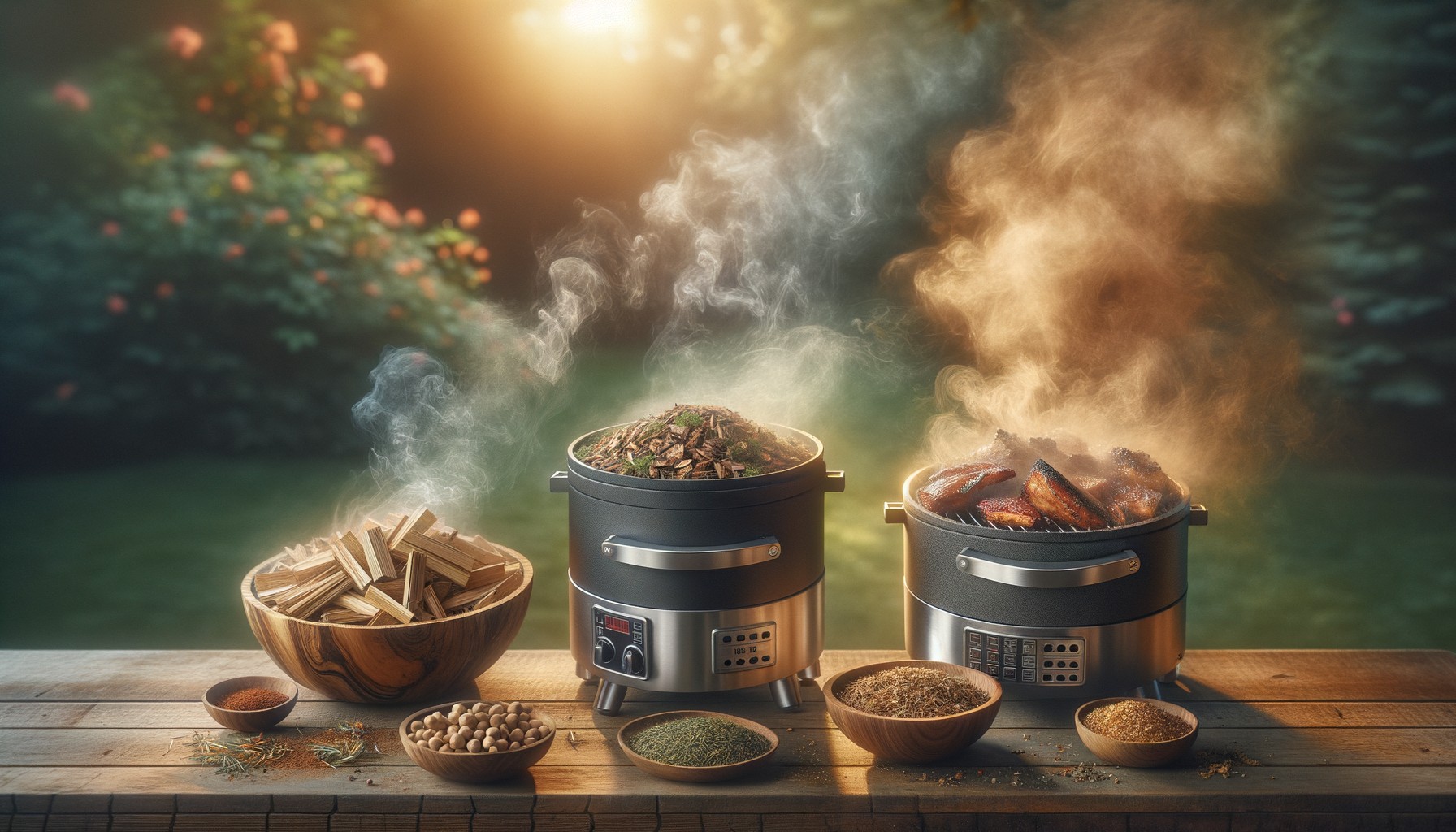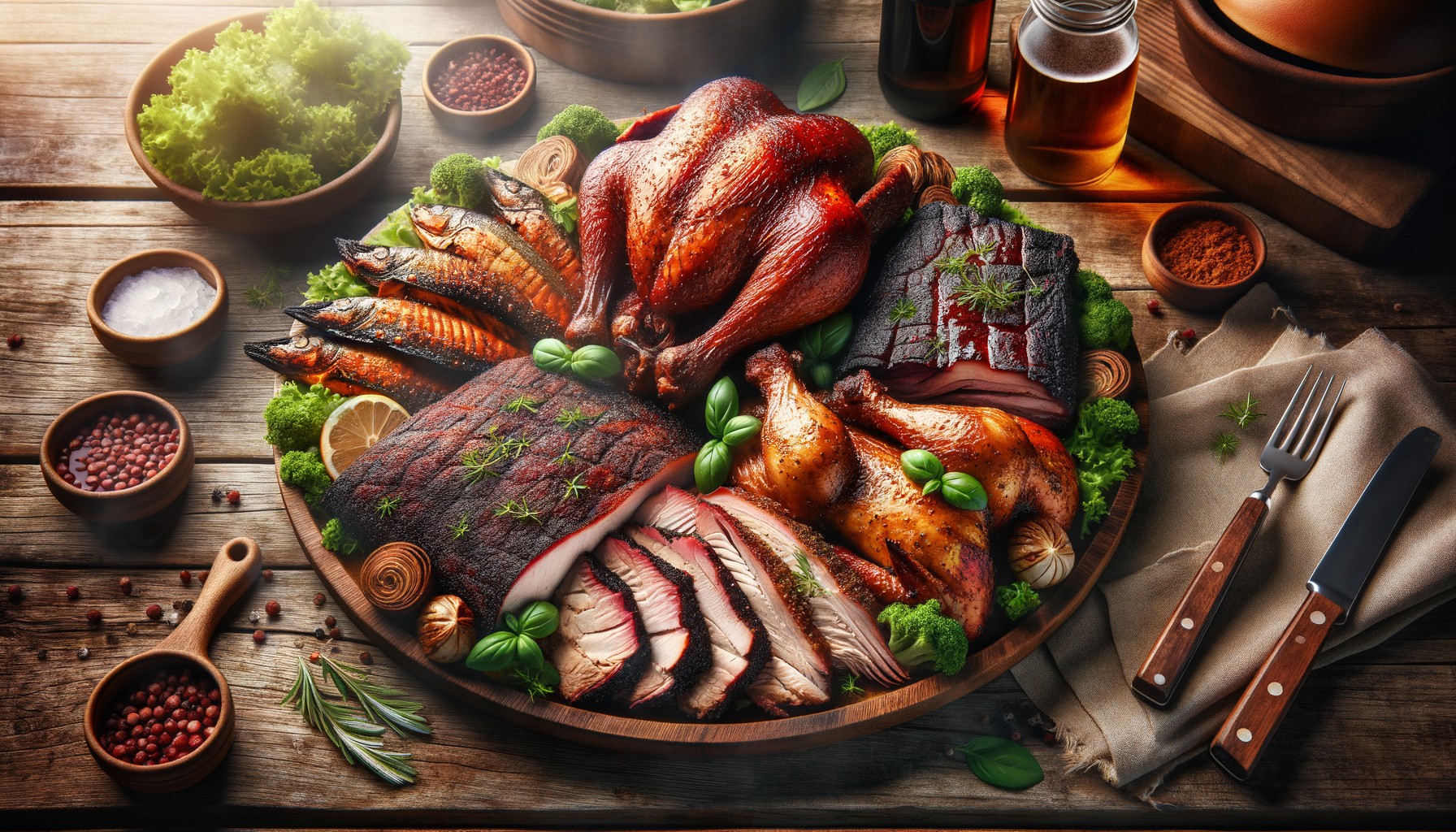Mastering Meat Smoking: Wood Chips vs. Wood Pellets
When it comes to infusing rich, smoky flavors into your meats, choosing the right type of wood is crucial. In the world of barbecue, wood chips and wood pellets are popular choices, each bringing its unique characteristics to the smoking process. This article will guide you through the nuances of using both, helping you master the art of smoking and elevate your BBQ flavors.
Understanding Wood Chips and Wood Pellets
Wood chips are small pieces of wood that burn quickly and are ideal for short smoking sessions. They're perfect for adding a quick smoke flavor to meats that cook relatively fast, such as chicken or fish. Wood pellets, on the other hand, are small, compressed sawdust pieces that burn slowly and consistently, making them suitable for longer smoking sessions needed for meats like brisket or pork shoulders.
Choosing the Right Wood Type
Both wood chips and pellets come in various types, each imparting a different flavor. For instance, hickory and mesquite provide a strong flavor, ideal for red meats. Apple and cherry woods offer a sweeter, milder smoke, perfect for poultry and pork. Experimenting with different wood types can help you discover the perfect match for each meat.
Techniques for Using Wood Chips
To use wood chips effectively, soak them in water for about 30 minutes before smoking. This prevents them from burning up too quickly and helps produce a smoother smoke. Place the soaked chips directly on charcoal or use a smoker box if you're using a gas grill. Keep the grill lid closed to trap the smoke and infuse more flavor into the meat.
Techniques for Using Wood Pellets
Wood pellets are typically used with pellet grills, which automatically feed the pellets into a fire pot where they are incinerated. If you're using a traditional smoker, you can still use pellets by placing them in a pellet tube smoker, which helps control their burn rate and smoke production.
Temperature Control and Smoke Intensity
Managing the temperature and smoke intensity is crucial for both chips and pellets. For wood chips, monitor the smoke and add more chips as needed to maintain the desired smoke level. For pellets, ensure your pellet grill or smoker is set to the appropriate temperature to maintain a steady smoke without flare-ups.
Enhancing Flavors with Wood Types
For beef, try hickory or oak for a robust flavor. Pork pairs wonderfully with apple or cherry for a sweet touch. Chicken benefits from lighter woods like alder or maple. Experiment with mixing woods to create custom flavor profiles that will surprise and delight at your next BBQ.
Conclusion
Choosing between wood chips and wood pellets will depend on the type of smoker you have and the length of your cooking session. By understanding the properties of each and experimenting with different woods, you can master the art of smoking and make your BBQ a flavorful success.


